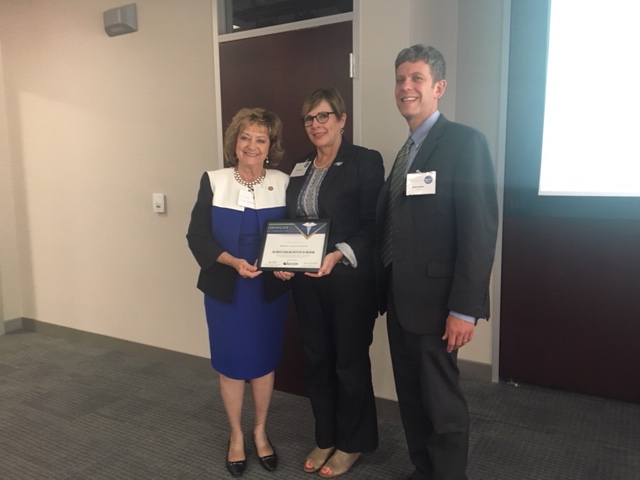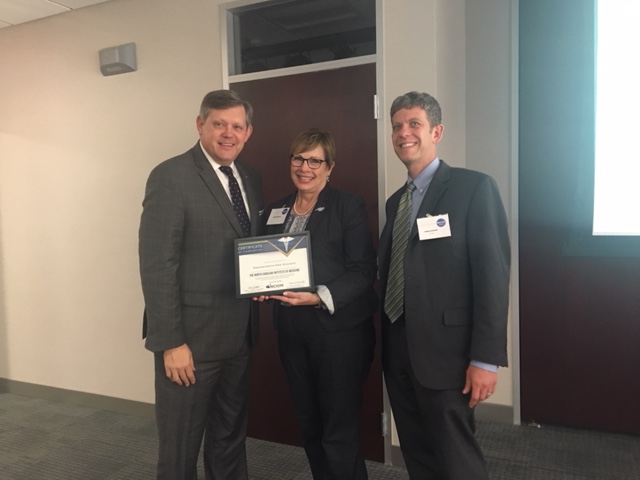

By Adam Zolotor and Michelle Ries

Health spending accounts for almost one-third of the state budget and is one of the most important policy areas in which lawmakers work. While most legislators come to office with little or no experience in health or health policy, they are charged with making laws that impact the health and well-being of all North Carolinians.
As members of the North Carolina Institute of Medicine’s inaugural class of Legislative Health Policy Fellows, state legislators came together at the North Carolina Institute of Medicine for three full days this spring to learn more about urgent health issues, engage with local and national policy experts, and build relationships across the aisle in an effort to make the best health policy decisions for our state. They were engaged, inquisitive, and yes, at times, argumentative as they learned and debated about many pressing health policy issues. We sought to develop a curriculum that would increase legislators’ base of knowledge about health policy, enhance their relationships with policy experts, and help them to identify resources they can use when developing new laws.
Our citizen legislature comes from all walks of life, and most work full-time jobs. Yet they spend about four months each year working to make North Carolina a better place to live and work. They do this for the royal sum of $13,941 per year. Most have just one staff member and share a small non-partisan research staff. We aimed to help these dedicated lawmakers do their jobs better. One member of the class said on day one, “I know nothing about health policy, that’s why I’m here.”
In this time of hyper-partisanship, a fly on the wall during our Fellows program might not have recognized these men and women as elected officials from different parties. One funder, visiting from Washington, D.C., commented: “After spending so much time in D.C., watching your state legislators in this program gives me hope that we can move forward on health policy.” A Fellow in the class commented that she appreciated the opportunity to work with colleagues across the aisle on shared issues of interest away from Jones Street:
“I thought it was very useful, especially as a new legislator, to be with my counterparts,” said District 49 Representative Cynthia Ball (D). “I liked that we were able to get together, all of us, from both the Senate and the House, the two different parties, and have discussions and learn together, and have more evolving bipartisan policymaking.”
Another Fellow commented on the value of getting to know colleagues outside of the legislative building, learning about their families, their other jobs, and their mutual policy interests. When these legislators rolled up their sleeves to study an issue (opioids, Medicaid, rural health, private insurance, care for older adults, etc.) their concerns were the same—they were all focused on the health and well-being of their constituents. While legislators’ health policy solutions differ, they all shared the goal of learning and improving relationships to better serve the people they represent.
“The format was excellent, bringing in experts and then facilitating discussion,” said District 9 Representative Gregory Murphy (R). “The vast majority of our legislators do not have the depth of knowledge (in health policy), but they’re responsible for it, so bringing in experts who are able to answer our questions, that is excellent.”
At the closing reception on June 18, NCIOM president and CEO Adam Zolotor shared the first policy issue brief created specifically at the request of legislators on recruitment and retention of health care providers in rural North Carolina. The topic of this brief was timely: HB 998, passed by the NC General Assembly earlier this month, aims to identify ways to incentivize health care providers to practice in rural areas of the state.
We applaud these legislators for their commitments to their jobs, to the health of North Carolinians, and to a focus on solutions: Representatives Ball, Black, Cunningham, Hurley, Murphy, Potts, Terry, White, Willingham, and Senators Bryant (former), Horner, Krawiec, Lowe, Pate, Tarte, and Woodard.
The Legislative Health Policy Fellows program is funded by the Blue Cross and Blue Shield of North Carolina Foundation, Cone Health Foundation, the Commonwealth Fund, and The Duke Endowment.
